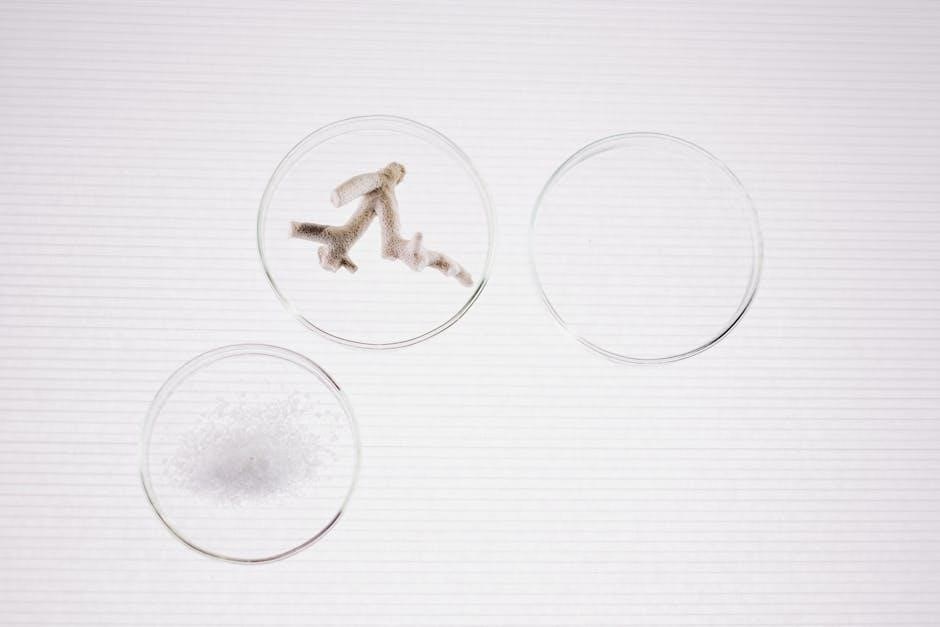Act Three of Romeo and Juliet is a pivotal section that intensifies the conflict and sets the tragic course of events in motion, forever altering the characters’ fates․
1․1․ Overview of Act Three’s Significance
Act Three is a turning point in Romeo and Juliet, escalating tensions and setting the tragic course of events in motion․ The fatal fight between Mercutio and Tybalt, followed by Romeo’s banishment, intensifies the conflict and accelerates the play’s inevitable tragic conclusion, highlighting themes of fate, impulsiveness, and the devastating consequences of unresolved feuds․
1․2․ Key Events and Their Impact on the Play
Key events in Act Three, such as Mercutio’s death, Tybalt’s slaying, and Romeo’s subsequent banishment, drastically alter the play’s trajectory․ These incidents heighten emotional stakes, deepen the characters’ despair, and set the stage for the heartbreaking conclusion, emphasizing the destructive power of impulsive actions and the unyielding feud between the Montagues and Capulets․
Scene 1: The Fatal Fight
Scene 1: The Fatal Fight begins with Benvolio and Mercutio discussing the hot weather, which Benvolio believes could lead to a fight․ Tybalt appears, seeking Romeo, but Mercutio steps in, leading to a duel where Mercutio is fatally wounded․ Enraged, Romeo kills Tybalt, resulting in his banishment․

2․1․ Benvolio’s Concerns About the Hot Weather
Benvolio notices the hot weather and expresses concern that it may provoke a fight, as people often become more aggressive in such conditions․ He suggests moving the confrontation elsewhere to avoid trouble, highlighting his cautious nature and attempt to prevent escalation․
2․2․ Mercutio and Tybalt’s Confrontation
Mercutio and Tybalt clash in a tense confrontation, with Mercutio refusing to back down despite Benvolio’s attempts to calm the situation․ Tybalt, seeking to provoke Romeo, insults him, leading Mercutio to defend his friend’s honor․ The argument escalates into a deadly fight, resulting in Mercutio’s fatal stabbing and setting off a chain of tragic events․
2․3․ Romeo’s Attempt to Stop the Fight
Romeo intervenes in the fight between Mercutio and Tybalt, urging them to calm down and avoid conflict․ He attempts to reason with them, emphasizing the consequences of their actions in Verona’s public space․ Despite his efforts, the confrontation escalates, leading to tragic outcomes that reshape the play’s trajectory․
2․4․ Mercutio’s Death and Its Aftermath
Mercutio’s death at Tybalt’s hand shocks Romeo, leading him to avenge his friend by killing Tybalt․ This act results in Romeo’s banishment from Verona, escalating the tragic consequences and deepening the feud between the Montagues and Capulets, while also intensifying Romeo’s emotional turmoil and sense of responsibility for the loss of his close friend․

Scene 2: Romeo’s Banishment
Romeo’s banishment follows Tybalt’s death, as the Prince exiles him from Verona․ This decree separates the lovers, escalating the tragic events and intensifying the conflict․
3․1․ The Prince’s Decree and Its Consequences
The Prince, angered by the bloodshed, banishes Romeo from Verona․ This decree forces Romeo into hiding, leaving Juliet alone and desperate, while Tybalt’s death escalates familial tensions and sets the stage for further tragedy, making reconciliation impossible and deepening the characters’ despair․
3․2․ Romeo’s Reaction to the News
Romeo, upon hearing of his banishment, is consumed by despair andhopelessness․ He sees his exile as a form of death, separating him from Juliet and his home․ His emotional turmoil leads him to seek comfort from Friar Laurence, who devises a risky plan to reunite the lovers, highlighting Romeo’s desperation and the dire consequences of impulsive actions․

Scene 3: Friar Laurence’s Plan
Friar Laurence devises a strategy to reunite Romeo and Juliet, allowing them one night together before Romeo’s exile, aiming to later seek his pardon and resolve the conflict․
4․1․ Friar Laurence’s Strategy to Reunite the Lovers
Friar Laurence devises a plan to reunite Romeo and Juliet by giving Juliet a potion to make her appear dead, allowing her to escape her arranged marriage․ He intends for Romeo to be informed of the plan, enabling the lovers to meet secretly․ This risky strategy aims to resolve the conflict but carries significant consequences if it fails․
4․2․ Romeo’s Desperation and Friar’s Advice
Romeo, overwhelmed by his banishment, visits Friar Laurence in despair․ The Friar advises Romeo to remain calm and patient, reassuring him that Juliet will be by his side․ Romeo, however, struggles with his emotions, fearing their separation will be permanent; Friar Laurence’s wisdom provides temporary solace, but Romeo’s anxiety persists, highlighting his impulsive nature and deep love for Juliet․
Scene 4: Juliet’s Dilemma
Juliet faces her parents’ insistence on marrying Paris, while her heart belongs to Romeo․ Torn between obedience and love, she resolves to seek Friar Laurence’s guidance, showcasing her determination․
5․1․ Juliet’s Parents’ Plan for Her Marriage
Lord and Lady Capulet arrange Juliet’s marriage to Paris, believing it will secure her future․ They are unaware of her secret marriage to Romeo, adding tension to Juliet’s predicament and forcing her to seek a desperate solution to avoid the union, highlighting the clash between familial duty and personal desire․
5․2․ Juliet’s Decision to Seek Help from Friar Laurence
Desperate to avoid marrying Paris, Juliet turns to Friar Laurence, hoping his wisdom can resolve her dilemma․ She begs for his help, willing to risk her life rather than betray Romeo, showcasing her unwavering loyalty and determination to preserve their love amidst the growing familial and societal pressures surrounding her․

Scene 5: The Lovers’ Final Meeting
Romeo and Juliet share a heart-wrenching farewell, their love shining brightly amidst impending separation․ Their emotional goodbye underscores the tragic inevitability of their fate, leaving a lasting impact on the audience․
6․1․ Romeo and Juliet’s Emotional Farewell
Romeo and Juliet’s final meeting is filled with emotional depth, as they confront the reality of their impending separation․ Their poignant dialogue reflects their desperate love and sorrow, highlighting the tragic inevitability of their fate․ The scene captures the intensity of their bond, leaving a profound emotional impact on the audience․
6․2․ The Tragic Foreshadowing of Their Fate
The final meeting of Romeo and Juliet is laden with tragic foreshadowing, as their emotional farewell hints at an unavoidable grim outcome․ Mercutio’s death and Romeo’s banishment accelerate the doomed sequence of events․ Juliet’s decision to seek Friar Laurence’s help, while hopeful, ultimately leads to a fatal plan; The lovers’ desperate actions and poignant dialogue underscore the inevitability of their tragic fate․
Themes in Act Three
Act Three explores themes of fate, love, loyalty, and impulsiveness, as the characters’ choices and emotions drive the tragic momentum, highlighting the inevitability of their doomed destiny․
7․1․ Fate vs․ Free Will
Act Three highlights the tension between fate and free will as Romeo and Juliet’s choices lead to tragic outcomes․ Mercutio’s death and Romeo’s impulsive revenge illustrate how their decisions accelerate the inevitable, emphasizing the interplay between personal agency and destiny․
7․2․ Love and Loyalty
Act Three underscores the enduring power of love and loyalty amidst turmoil․ Romeo and Juliet’s unwavering devotion persists despite obstacles, while Mercutio’s loyalty to Romeo and Juliet’s defiance of her parents highlight the sacrifices made for love, showcasing its transformative and unyielding nature in the face of adversity․
7․3․ Impulsiveness and Its Consequences
Impulsiveness drives pivotal moments in Act Three, as Mercutio’s fiery confrontation with Tybalt leads to his death, prompting Romeo’s rash decision to avenge him․ This impulsive act results in Romeo’s banishment and sets off a chain of tragic events, underscoring how hasty actions can have devastating and irreversible consequences, shaping the play’s dire outcome․

Symbolism and Imagery in Act Three
Act Three employs vivid imagery, with light symbolizing hope and dark foreshadowing tragedy․ The dagger represents violence and fate, while poison signifies Romeo’s despair, enriching the emotional depth of the play’s tragic progression․
8․1․ The Use of Light and Dark Imagery
Light and dark imagery in Act Three symbolize hope and despair․ Romeo associates light with Juliet, embodying love and joy, while darkness reflects his despair and looming tragedy․ Juliet’s light is overshadowed by her parents’ demands, contrasting her inner hope with external darkness․ This duality underscores the tragic trajectory of their story, enhancing emotional depth and foreshadowing the inevitable heartbreak․
8․2․ The Symbolism of the Dagger and Poison
The dagger and poison in Act Three symbolize violence and tragic fate․ The dagger represents the deadly confrontation between Mercutio and Tybalt, escalating the conflict․ Poison, later used by Romeo, signifies his desperation and the inevitability of destruction․ These symbols highlight the destructive forces driving the characters toward their doomed destiny, underscoring the play’s themes of violence and irreversible consequences․

Character Development in Act Three
Romeo transitions from a lovesick romantic to a vengeful figure, driven by anger and grief․ Juliet evolves from innocence to determined resilience, while Tybalt’s aggression escalates tragedy․
9․1․ Romeo’s Transformation from Love to Anger
Romeo’s initial devotion to Juliet shifts dramatically after Mercutio’s death․ Overwhelmed by rage and guilt, he abandons his peaceful nature, seeking revenge against Tybalt, which leads to his banishment and deepens the tragic consequences of his actions․
9․2․ Juliet’s Growth from Innocence to Determination
Juliet evolves from a naive adolescent to a resolute young woman in Act Three․ Facing her parents’ insistence on marrying Paris, she defies tradition, seeking Friar Laurence’s help to preserve her love for Romeo, showcasing her newfound strength and willingness to risk everything for her desires․

9․3․ Tybalt’s Role as the Catalyst for Tragedy
Tybalt’s relentless hatred for the Montagues and his impulsive nature ignite the tragic events of Act Three․ His lethal confrontation with Mercutio and subsequent death at Romeo’s hands lead to Romeo’s banishment, accelerating the play’s downward spiral into irreversible tragedy and heartbreak․
Study Guide Questions for Act Three
- How does the fatal fight between Mercutio and Tybalt impact Romeo’s fate?
- What motivates Juliet’s decision to seek help from Friar Laurence?
- Analyze the emotional dynamics during Romeo and Juliet’s final meeting․
10․1․ Key Questions to Analyze the Plot and Characters

- How does Mercutio’s death influence Romeo’s actions and decisions?
- What role does fate play in the tragic events of Act Three?
- Analyze Juliet’s transformation from innocence to determination․
- How does Tybalt’s aggression escalate the conflict?
- What motivates Friar Laurence to devise his risky plan?
10․2․ Themes and Motifs to Explore
- Fate vs․ free will: How the characters’ choices and external circumstances drive the tragic outcome․
- Love and loyalty: The enduring commitment of Romeo and Juliet despite obstacles․
- Impulsiveness: How rash decisions lead to devastating consequences․
- Light and dark imagery: Symbolizing the contrast between love and conflict․
- The dagger and poison: Motifs foreshadowing the tragic ending․
Act Three pivotal events escalate the tragic sequence, setting the stage for inevitable heartbreak, as fate and impulsive decisions seal the lovers’ destined, heart-wrenching end․
11․1․ Summary of Act Three’s Impact on the Play
Act Three’s pivotal events, including Mercutio’s death, Romeo’s banishment, and Juliet’s defiance, dramatically escalate tensions, reshaping the characters’ fates and setting the stage for the tragic culmination of the play․
11․2․ Final Thoughts on the Tragic Sequence of Events
Act Three’s tragic sequence of events underscores the inevitability of fate and the devastating consequences of impulsive decisions, ultimately sealing the doomed fate of the star-crossed lovers and leaving a lasting impact on Verona․